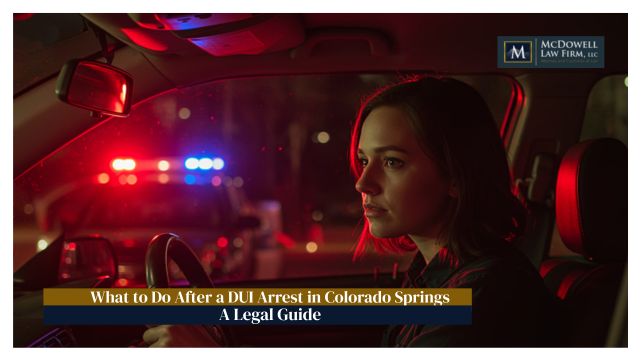In Colorado, the legal definitions of assault, harassment, and menacing differ from those in other states. In the media, we sometimes hear terms like “assault and battery” to refer to incidents where another party injures someone. Notably, Colorado does not have a crime labeled “battery.” What some jurisdictions refer to as “battery” is encompassed under Colorado’s assault statutes. Similarly, actions termed “assault” elsewhere may fall under Colorado’s definition of menacing. Confused yet?
The most important thing to remember is that each jurisdiction will have its own individual laws and definitions to describe certain crimes. If you have been charged with an assault crime, speak to an attorney near you to discuss the facts of your case. There are many important details involved in assault cases that can determine the level of the charge, and whether there are any additional consequences. Certain assault crimes will have varying consequences and penalties.
- Domestic violence
- Sexual Assault
- Child Abuse
- Elderly or “at-risk” victims
Assault in Colorado
Under Colorado law, assault involves causing bodily injury to another person. It is categorized into three degrees, each reflecting the severity and circumstances of the offense:
- First-Degree Assault (C.R.S. § 18-3-202): This is the most severe form, involving intentional and serious bodily injury, often with a deadly weapon. FELONY
- Second-Degree Assault (C.R.S. § 18-3-203): This includes intentional or reckless infliction of bodily injury, sometimes involving a weapon or resulting from certain conduct like strangulation. FELONY
- Third-Degree Assault (C.R.S. § 18-3-204): This pertains to knowingly or recklessly causing bodily injury to another person. MISDEMEANOR
It’s important to note that Colorado does not have a separate statute for “battery.” Therefore, actions that might be considered battery in other states are prosecuted under Colorado’s assault statutes. And what might be considered “assault” in another state, could fall under Colorado “menacing” laws. In every case, review the laws in your area, and look for a lawyer near me to understand the potential outcomes and effects in your assault matter.
Harassment in Colorado
Harassment in Colorado encompasses a range of behaviors intended to harass, annoy, or alarm another person. According to C.R.S. § 18-9-111, a person commits harassment if, with intent to harass, annoy, or alarm another person, they
Strike, shove, kick, or otherwise touch a person or subject them to physical contact.
Direct obscene language or gestures at another in a public place.
- Follow someone in or about a public place.
- Initiate communication with someone, anonymously or otherwise, in a manner intended to harass or threaten, including through electronic means.
Harassment charges in Colorado are misdemeanors. Review the statute in your area to see what will fall under harassment, as there will be varied definitions from state to state.
Menacing in Colorado
Menacing, defined under C.R.S. § 18-3-206, involves placing or attempting to place another person in fear of imminent serious bodily injury through threats or physical actions. The Colorado offense of “menacing” is similar to what some other states might classify as “assault.”
- Misdemeanor Menacing: Occurs when no deadly weapon is involved.
- Felony Menacing: Elevated to a class 5 felony when the threat involves a deadly weapon or an object that appears to be a deadly weapon.
The key element is the perpetrator’s knowledge that their actions would place someone in fear of imminent serious bodily harm.
Comparing the Offenses: Assault vs Harassment vs Menacing
| Offense | Definition | Physical Injury Required | Level of Fear Induced | Weapon Involvement | Penalty Severity |
| Assault | Causing bodily injury to another person | Yes | Not necessarily | Possibly | Varies by degree |
| Harassment | Engaging in behavior intended to harass, annoy, or alarm | Not necessarily | Possibly | Not necessarily | Typically misdemeanor |
| Menacing | Placing someone in fear of imminent serious bodily injury | No | Yes | Possibly | Misdemeanor or felony (depending on weapon involvement) |
Importance of State-Specific Definitions on Assault vs Battery vs Menacing
Criminal statutes and definitions can vary significantly between states. For instance, what constitutes “battery” in one state may be prosecuted as “assault” in Colorado. Similarly, actions labeled as “assault” elsewhere might fall under “menacing” in Colorado. People facing charges should consult the specific statutes in their jurisdiction to understand the nature and implications of the offense.
Conclusion
Understanding the distinctions between assault, harassment, and menacing in Colorado is essential for legal clarity and appropriate defense. Given the nuances in definitions and the absence of certain terms like “battery,” individuals should seek legal counsel familiar with Colorado’s statutes to navigate any charges effectively.
If you have assault, menacing, or harassment charges in Colorado Springs, El Paso County, or Teller County, contact the McDowell Law Firm for a free consultation. We handle first-degree assault, second-degree assault, and third-degree assault cases (felony assault or misdemeanor assault). The McDowell Law Firm also handles all menacing and harassment cases.
Attorney Josh McDowell has extensive experience handling D.V. cases and military domestic violence cases, both as a former prosecutor and as a defense lawyer in Colorado Springs. Give us a call at 719-227-0022, or visit our law offices in beautiful downtown Colorado Springs.
Note: This blog is for informational purposes only and does not constitute legal advice. For specific legal concerns, consult a qualified criminal defense attorney in your area to discuss the specific facts of your case.





